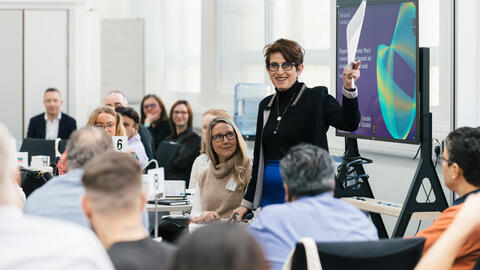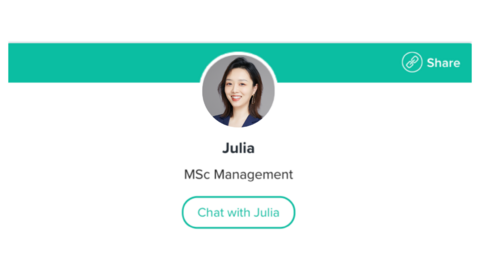Imperial Business School and Corndel partner to deliver Apprenticeship Programmes
Imperial Business School and Corndel have launched a new strategic partnership that brings together the academic excellence of a world-leading business school and the expertise of the country’s leading professional apprenticeship provider. The partnership will result in the creation of several world-class, high-impact training courses. In England these can be fully funded through the Government’s Apprenticeship Levy.
The first course launched under the partnership is the Imperial and Corndel Executive Development Programme, which equips participants with the practical leadership skills required to motivate teams, inspire change and improve business performance.
Participants will develop and evolve their leadership skills in the context of digitally transformed organisations. Topics include understanding sources of digital value, implementing digital transformation, and navigating regulatory and cyber security challenges.
The blended technology-enabled programme includes group seminars, masterclasses and continuous, personalised one-on-one coaching.
Going live in October 2021, the 12-month programme is designed for professionals who have at least five years of management experience and are looking to progress into senior management roles. Applicants will be assessed on their ability to undertake the course rather than any previous A-level or degree-based qualification they may have.
Upon programme completion, participants will receive an apprenticeship, Chartered Management Institute qualification and Imperial College Business School Executive Education Associate Alumni status.
David Brown, Imperial Executive Education’s Director said:
“Imperial Business School is delighted to partner with Corndel in this major initiative in executive education. At Imperial, we are committed to increasing access to leading edge thinking for businesses and organisations. We want to help individuals translate learning into practice and make a difference at speed. This initiative is in response to huge demand from companies and organisations seeking to increase their capabilities in management, leadership and technology. And in this case using the terrific opportunity afforded by the Apprenticeship Levy.”
James Kelly, Corndel’s Co-Founder said:
“Corndel are delighted to be partnering with Imperial Business School to continue to redefine the traditional apprenticeship and take forward our vision of brilliant lifelong learning for all. This partnership breaks down the silo between academic excellence and vocational training. It will give a new generation of managers both the management theory and the practical workplace skills required for today’s workplace”
The Imperial and Corndel Executive Development Programme will be open to applications from October 2021. If you are interested in helping your employees build stronger leadership skills to drive performance within your organisation, please get in touch here.


















